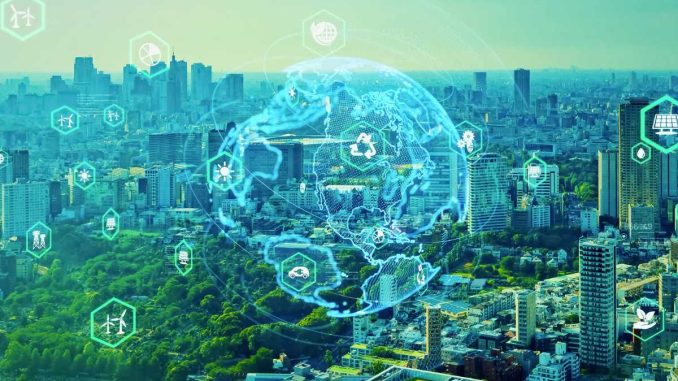
The Role of Technology in Environmental Stewardship
Technology has always been a double-edged sword. On one hand, it has fueled industrialization and contributed to environmental harm through pollution, habitat destruction, and unsustainable resource extraction. On the other hand, modern advancements are now being leveraged to mitigate these very issues and enable more sustainable practices. As global awareness of environmental crises grows, technology is increasingly seen as an enabler of a more balanced relationship between humans and the natural world.
Renewable Energy Revolution
One of the most visible and impactful intersections between technology and sustainability is in the realm of renewable energy. Solar, wind, and hydropower technologies have seen exponential growth in efficiency and scalability, thanks to advances in materials science, energy storage, and digital optimization. Solar panels, for example, are now cheaper and more efficient than ever before, making solar energy a viable solution for both households and large-scale industries.
Additionally, the development of smart grids and advanced battery technologies is allowing for better integration of renewable energy sources into the traditional power grid. This reduces reliance on fossil fuels and lowers greenhouse gas emissions, all while ensuring that energy supply remains reliable and efficient. Renewable energy technology is helping transition the world away from coal, oil, and gas, marking a pivotal shift toward sustainability.
Green Transportation and Electric Mobility
Transportation is one of the largest contributors to global greenhouse gas emissions. However, innovations in electric vehicles (EVs), battery technology, and mass transit solutions are dramatically changing this. Electric cars, buses, and even trucks are becoming more common, with major automakers investing heavily in electric mobility solutions.
Beyond EVs, advancements in autonomous vehicle technology and ride-sharing platforms are further reducing emissions by optimizing transportation networks and reducing the need for personal vehicle ownership. Cities around the world are also implementing smart transportation systems, improving efficiency and reducing congestion through data-driven decision-making.
Circular Economy and Sustainable Manufacturing
The concept of the circular economy, which aims to minimize waste and make the most of resources, has gained traction through technological innovation. In traditional manufacturing models, goods are made, used, and discarded. A circular economy, by contrast, keeps products, materials, and resources in use for as long as possible. Technology is enabling this transition through advancements in recycling processes, material science, and product lifecycle management.
For instance, 3D printing technology is enabling manufacturers to create products with minimal waste by using only the exact materials required. Additionally, sensors and Internet of Things (IoT) devices can monitor the condition of machinery and infrastructure in real-time, reducing the need for unnecessary replacements and enabling predictive maintenance.
Sustainable Agriculture and Food Technology
The agricultural industry faces enormous pressure to feed a growing global population while reducing its environmental footprint. Precision agriculture, powered by data analytics, drones, and IoT, allows farmers to optimize water usage, reduce pesticide application, and increase crop yields in an environmentally sustainable manner.
Vertical farming and lab-grown food technologies are also making waves as alternatives to traditional farming. These innovations require less land, water, and energy, making them crucial in the fight against deforestation, water scarcity, and climate change. By transforming how food is grown, processed, and distributed, technology is fostering a more resilient and sustainable global food system.
Waste Management and Pollution Control
The efficient management of waste and pollution is another area where technology is proving indispensable. Smart waste management systems use sensors to optimize waste collection routes, reducing fuel consumption and emissions. Waste-to-energy technologies are converting organic waste into biofuels and electricity, providing an alternative to landfills.
Moreover, air and water quality monitoring technologies are helping industries and governments track pollution levels in real-time, enabling quicker responses and more effective regulation. Technologies such as carbon capture and storage (CCS) are also being developed to reduce the impact of industrial emissions.
Challenges and Ethical Considerations
While the intersection of technology and sustainability offers incredible potential, it is not without challenges. The production of some technologies, like solar panels and batteries, can have environmental downsides, including resource extraction and waste generation. Furthermore, the rapid pace of technological change often creates inequalities in access, with wealthier nations and populations benefiting more from green tech innovations than poorer ones.
Ethical considerations must also guide the development and deployment of these technologies. Ensuring that technological solutions do not inadvertently cause harm or exacerbate existing environmental and social problems is critical to their long-term success.
Conclusion: A Collaborative Effort Toward a Greener Future
The convergence of technology and sustainability is opening up new pathways to address some of the world’s most pressing environmental challenges. By leveraging innovations in energy, transportation, agriculture, and manufacturing, we can reduce our ecological footprint and create a more sustainable future.
However, achieving this greener future requires a collective effort. Governments, businesses, and individuals must work together to support the development and adoption of sustainable technologies. With the right policies, investments, and mindset, the fusion of technology and sustainability can transform our world, leaving behind a healthier planet for generations to come.